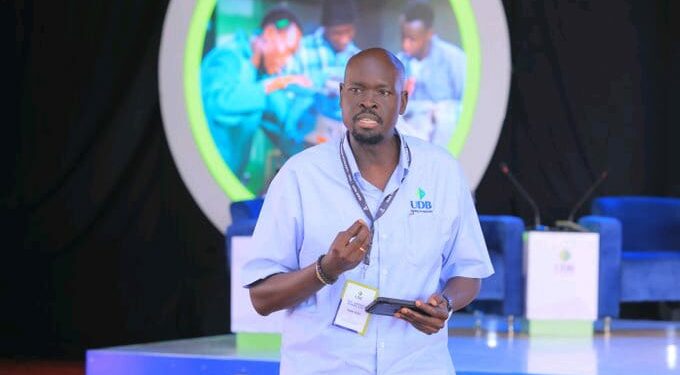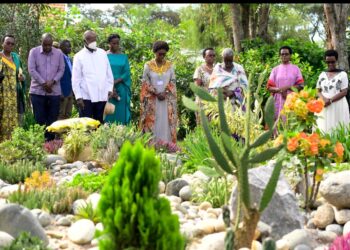Uganda Development Bank (UDB) has tightened its grip on a post Covid-19 business recovery plan with new financial interventions for enterprises in Teso-Karamoja sub regions.
These impressive interventions which are directed at Micro, Small and Medium Enterprises (SMEs) in addition to large establishments are intended to actualize their recovery from devastating effects of Covid-19.
The sensitization drive dubbed UDB Business Clinic is focused around the theme; Financial intervention for inclusive and sustainable development. It was held at Soroti University on October 21st 2022, majorly to inspire business owners undertake strategies to financially resuscitate their establishments and enhance growth prospects.
The business clinic was also aimed at discussing funding opportunities for businesses, youth, SMEs and women in Teso-Karamoja sub regions to harness their growth potential and develop the region’s economic productivity, something that is in tandem with UDB’s mission as a developmental financial institution in Uganda.
Besides, the clinic was tailored towards pointing out bottlenecks that are responsible for high attrition rates of young start-ups like ineffective governance practices, inadequate adoption of technology to scale, poor financial management, inadequate expertise, and most importantly inadequate access to funding, with a major focus being how these challenges can be mitigated to ensure a robust business environment.
The symposium attracted a vast number of innovators, large business owners, policy makers, academicians, local government leaders, small holder farmers and peasants, whose presence was vital in the discussion of issues at hand.
While addressing participants, the Director Credit at UDB, Samuel Edem Maitua noted that the institution he works for has a vast number of initiatives designed to cater for all categories of individuals, SMEs and other entities. He appealed to people to approach the bank in order to gain unprecedented access to different financial facilities through a short form that needs to be filled, which can even be accessed on the internet.
Most importantly, he added that UDB offers a minimum of UGX. 100m to 900m with a loan tenure of up to 18 months and a grace period of up to 6 month, with interest rate of around 10 to 12%.
Also addressing participants at the same function, UDB Managing Director Patricia Ojangole said that as a financial institution whose prime aim is to help businesses flourish, they felt duty-bound to reach out to people in the two sub regions by senstizing them about different loan incentives offered by the bank, whose terms and conditions are too friendly.
“We have a team of staff here that head our key units at the bank and we should work together to create solutions with you and utilize the resources of the region,” Ms. Ojangole told participants.
She also remarked that the bank majorly invests in key sectors which include; agriculture, tourism and industry, hinged on its strategic plan that works strongly for the growth and development of all sorts of businesses in the region.
“We are here to help you grow. Whats your business vision? UDB is here to enable you reach that vision,” she added.
Barbra Kasekende, the head business advisory at UDB stressed that the bank’s prime aim of undertaking such strategies is to make Teso-Karamoja sub regions great again by improving the livelihood and business minds of the people, noting that UDB will support and enable businesses to survive in the aftermath of Covid-19.
Also present at the function was Soroti University Vice Chancellor Prof. Robert Ikoja Odongo. He lauded UDB for its financial inclusivity, by trying to initiate interventions to boost business owners at grassroot levels.
Prof. Odongo clarified that such efforts will largely heighten agricultural initiatives and tourism in the region.
“Our key investment sectors include agriculture, tourism and industry. The bank has a strategic plan, services and a team that works strongly for the growth and development of your business,” said Prof. Odongo.
UDB’s intervention in the two sub regions is grounded in a long-term objective of reducing poverty levels, youth unemployment and ignorance through several financial facilities and mindset change strategies.
These interventions are highly likely to boost manufacturing in the sub regions especially agro-processing and adding value to products like cotton, simsim, millet, ground nuts, mangoes, oranges and other such essential food crops.
Do you have a story in your community or an opinion to share with us: Email us at editorial@watchdoguganda.com













